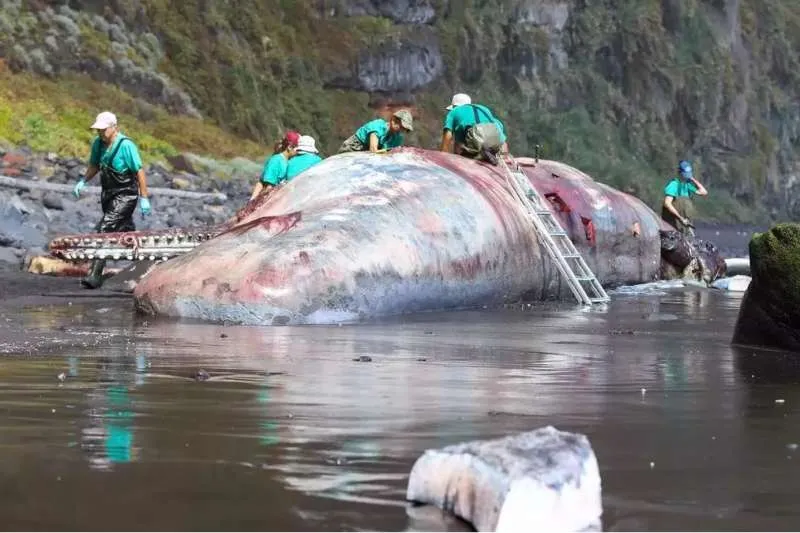
Last month, experts discovered a rich treasure or “Floating Gold” buried in the entrails of a sperm whale found dead on Nogales Beach in La Palma, Canary Islands. During the autopsy of the whale, Antonio Fernández Rodrguez, head of the Institute of animal health and food security at the University of Las Palmas, discovered that the enormous mammal died owing to a probable stomach ailment. Rodrguez discovered something hard trapped inside the animal’s intestines, which proved to be the cause of death.
“What I took out was a stone about 50-60cm in diameter weighing 9.5kg. The waves were washing over the whale. Everyone was watching when I returned to the beach but they didn’t know that what I had in my hands was ambergris,” said Rodríguez.
It is estimated that less than 1% of sperm whales have the ability to secrete ambergris. The lump in Rodrguez’s palm was worth more than $5.4 million. While most waste is eliminated, in the case of the whale in La Palma, ambergris grows too big, rupturing the intestine and killing the whale. Rodrguez confirmed after the autopsy that the whale died of sepsis induced by ambergris. The institute is currently looking for a buyer to purchase the ambergris, with the proceeds going to victims of the volcano that erupted on La Palma in 2021.
“The law is different in every country,” Fernández said. “In our case, I hope the money will go to the island of La Palma, where the whale ran aground and died.”
What exactly is ambergris?
Ambergris, often known as whale vomit, is derived from the old French terms ‘amber’ and ‘gris’, which approximately translate as grey amber. This thick waxy substance is produced by whales as a sort of vomit, which fishermen frequently find floating in the sea. Whales typically live by consuming vast amounts of squid and cuttlefish. However, the majority of it cannot be digested and must be vomited out. Some of it remains in the digestive tract and combines together to make ambergris over time.
Because perfume businesses use ambrein alcohol extracted from ambergris to prolong smell, it is known as Treasure of the Sea or Floating Gold. Because of the commodity’s scarcity, it is prohibited in some nations, including the United Kingdom and Australia. The Wildlife (Protection) Act of 1972 in India makes the possession and sale of ambergris illegal.






